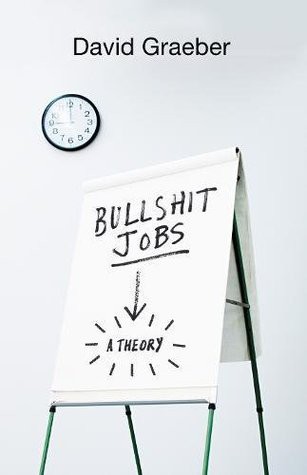michiel a publié une critique de Bullshit Jobs par David Graeber
Much more than just the original essay padded out over 300 pages.
5 étoiles
I was afraid that this was going to be a padded out version of his original essay, but I needn't have worried. Give Graeber 300 pages, and he'll give you ideas worth 600 of them. Coupled with his keen sense for observational comedy, and you get a book that's easy to read, keeps your attention, and highly entertaining.
I was afraid that this was going to be a padded out version of his original essay, but I needn't have worried. Give Graeber 300 pages, and he'll give you ideas worth 600 of them. Coupled with his keen sense for observational comedy, and you get a book that's easy to read, keeps your attention, and highly entertaining.






